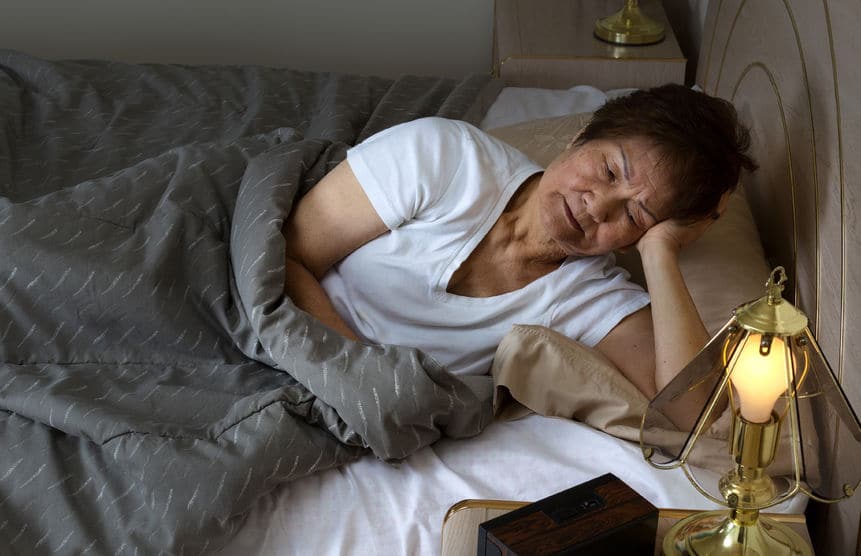
Copyright: tab1962 / 123RF Stock Photo
According to the journal Neurology, losing sleep can raise the risk of Alzheimer’s disease. Losing even a little sleep can lead to a greater risk of Alzheimer’s, the leading cause of dementia.
Another study found that sleep disruption raised the level of brain proteins believed to cause Alzheimer’s. Sleep helps the body clear away the compounds amyloid and tau, and interrupted sleep may allow too much of them to build up.
Increasing your restful sleep each night is very important. Here are some ways to solve sleep problems in seniors:
- Understand your sleep needs. Seven hours is the standard need for most adults, which really doesn’t change with age. You may need to start your sleep cycle earlier, however.
- Take snoring seriously. Get it checked out. It could mean you have sleep apnea, which is a serious condition.
- Check your lifestyle. To ensure a healthy sleep cycle, eat sensibly, maintain a healthy weight, and exercise daily. Quit smoking and only consume caffeine before noon.
- Avoid alcohol rebound. Alcohol tolerance decreases with age. So although it makes you sleepy at first, alcohol in the evening actually increases insomnia.
- Propped up? Ask why. If you can’t sleep lying down, it could mean medical problems. If you have to prop up to breathe, getting evaluated and treated will improve your sleep.
- Deal with depression. Someone who is depressed may not sleep well, and vice versa. Don’t accept depression as a normal part of aging. Get it treated.
- Reset your bedroom habits. Associate your bedroom only with sleep (and sex). Don’t read, watch TV, or check email while in bed.
- Practice sleep hygiene. Create a consistent sleep schedule. Reduce noise and clutter in the room. Make the room dark and cool. Make it a better sleep environment.
- Get out of bed. Get up at the same time each day, even if you haven’t slept much during the night. Don’t stay in bed to compensate. You will be sleepy during the day, but that will help you sleep better that night, and help you get on a schedule.
- Seek sleep help. When the problem begins to disrupt your life, get help. There are many options, including sleep centers, psychologists, therapy groups. Choose the one that you feel most comfortable with to start.
- Manage medical conditions. Your sleep issues could be due to a prescribed medication you are taking for a medical condition. Ask your doctor or pharmacist if these medications can cause sleep-related side effects, and if switching to different drugs or adjusting the amounts or timing of doses may help.
- Relieve restless legs. Restless leg syndrome is more common in middle-aged and older adults. Treat it by cutting tobacco and alcohol, taking warm baths, and applying heating pads or foot-wrap devices.
- Try fewer sleeping pills, more sun. All medications have risks. Instead, try sunlight. Getting 30 minutes to an hour of sunlight exposure daily will increase your sleep.
Getting a good night’s sleep is important for everyone, but should be taken more seriously for anyone with changes in memory or behavior.
teleCalm immediately stops all telemarketers and scammers from reaching your loved one over the phone. Find peace of mind for yourself and your loved one. Know that your senior is protected while still being connected to family and friends. Retain their dignity and independence. Sign up today.